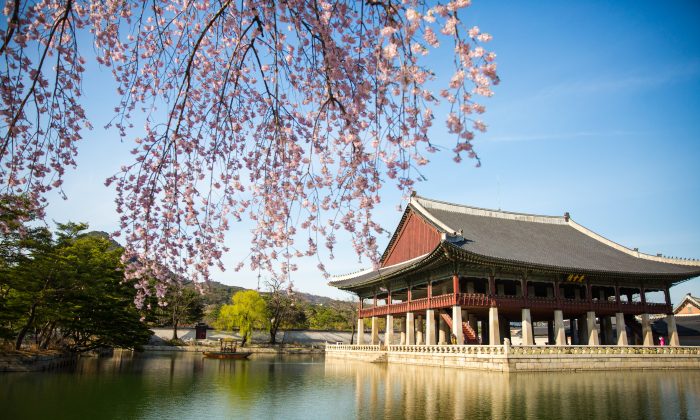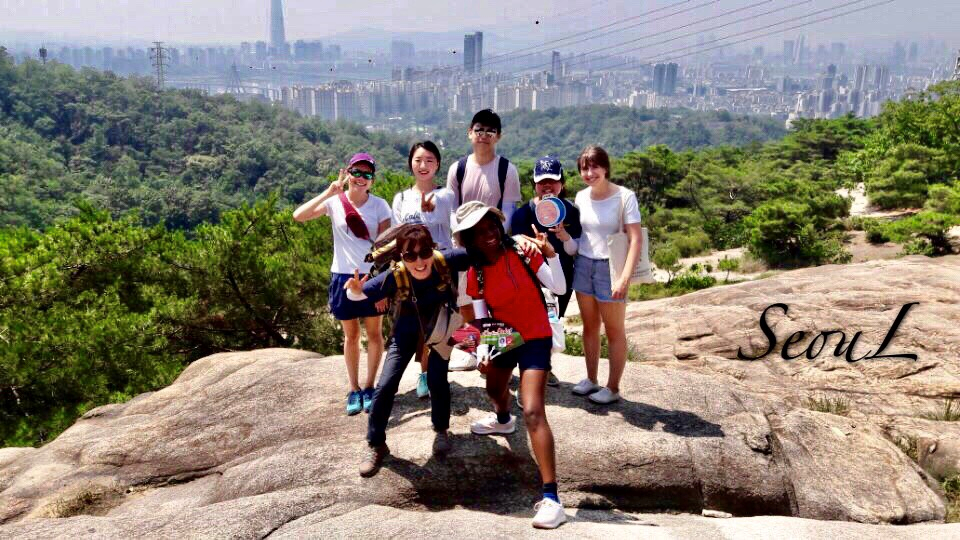Korean

Korea is a country that has a 5,000 year-long history, in which it has developed its own unique traditions in lifestyles, food, religions, and ideologies. South Korea has become a leader in the global economy, particularly in the industrial and technological sectors, having achieved economic growth at an unprecedented speed after the Korean War. In the past two decades, many elements of Korean culture, such as the country's popular music, film and television productions, and fashion, have spread across Asia and the rest of the globe and become a unique and influential part of world culture.
Korean is the official language of South Korea and North Korea. Korean is spoken by approximately 80 million people around the world, including large ethnic Korean communities in China, Japan, the United States, and Central Asia.
Hangul, the native Korean writing system, was invented in 1443 during the Joseon Dynasty by King Sejong the Great so that members of the public who had little formal education could learn to read and write. Displaying tremendous ingenuity in its creation, Hangul is regarded as the most scientific system in the world and is easy to learn to read and write. The UNESCO King Sejong Literacy Prize, created in 1989 in honor of King Sejong, is given to governmental or non-governmental organizations that make contributions to literacy.
The Korean Language Program at the University of Rochester guides students in learning Korean through a focus on language and cultural awareness and a communicative approach. While the aims of language instruction are consistent with language program objectives, the program always seeks innovative ways to achieve these objectives in a manner that coincides with the interests and needs of students.
Learning Korean can help give students a competitive edge when applying to companies or graduate schools. Along with language skills, students can also explore Korea's history and culture, which stretches back thousands of years.
Below is information on:
- Korean minor requirements
- Korean courses
- Korean cluster
- Study Abroad
- Language placement
- Contact information

Korean Minor Requirements
The Korean minor (effective fall 2026) offers students the opportunity to explore both the Korean language and culture, fostering not only language acquisition but also a deeper understanding of the broader cultural, historical, and social contexts in which the language is used. It enables learners to appreciate and critically engage with Korean popular culture and literature while developing the linguistic and cultural skills necessary for basic communicative competence with native Korean speakers. As Korea continues to play a leading role in global industries such as technology, entertainment, and business, proficiency in Korean offers valuable advantages in today’s interconnected job market.
The minor in Korean requires five four-credit courses. Students have the choice of the following two options:
Option 1: Take five consecutive language courses from the list of Korean language courses.
Option 2: Take a minimum of four consecutive Korean language courses from the list of Korean language courses, plus a minimum of one course in Korean/East Asian culture and history offered by the Department of Modern Languages and Cultures or the Program of East Asian Studies.
Credit Transfer
Students can transfer one language course or one course in Korean/East Asian culture and history from another institution or a semester abroad program. In the case of language coursework, students can transfer the credit for the Korean minor, provided they pass the Korean language placement test administered by the Korean program.
Study Abroad Programs (KORE 107, KORE 157, KORE 207)
Students can use one summer study abroad program to replace one language course or one course in Korean/East Asian culture and history.
Students are required to consult with the Korean program faculty when selecting courses in Korean/East Asian culture and history.
Korean Language Courses
KORE 101: Elementary Korean I
KORE 102: Elementary Korean II
KORE 107 Korean in Korea (summer)
KORE 111: Elementary Korean 1 (summer)
KORE 112: Elementary Korean 2 (summer)
KORE 151: Intermediate Korean I
KORE 152: Intermediate Korean II
KORE 157 Korean in Korea (summer)
KORE 201: Advanced Intermediate Korean I
KORE 202: Advanced Intermediate Korean II
KORE 207 Korean in Korea (summer)
Korean Cluster
The department currently offers one Korean cluster in the humanities academic division.
Korean Language (H1KORE001)
This cluster focuses on the study of Korean at the elementary, intermediate and advanced levels.
Study Abroad
Summer Program in Seoul, Korea
Students can now participate in a four-week summer Korean language and culture program. Students will stay with host families, take Korean classes, engage in cultural activities and community service, and go on cultural excursions in Korea. Interested students should contact Professor Myounghee Cho at myounghee.cho@rochester.edu for more information.
 Summer 2018 / Back Line: Genevieve Arany-Lao-Kan ('20), Chuang Liu ('20), Wooyoung Kim ('20), Jenny Yau ('20), Kendra Sobania ('20) / Front Line: Professor Myounghee Cho, Gamuchirai Sibanda ('21)
Summer 2018 / Back Line: Genevieve Arany-Lao-Kan ('20), Chuang Liu ('20), Wooyoung Kim ('20), Jenny Yau ('20), Kendra Sobania ('20) / Front Line: Professor Myounghee Cho, Gamuchirai Sibanda ('21)
Language Placement Information
Students who have no or limited background in Korean can take KORE 101. Students who are not sure about their proficiency or who are interested in taking a class beyond KORE 101 should contact Professor Myounghee Cho at myounghee.cho@rochester.edu for an interview or you can take the Korean language placement test.
The Korean language placement test will be available during the placement test season or upon students’ request.
The test is designed to assess your current Korean proficiency so that you will be placed at the most appropriate level where you can achieve the best learning outcomes. All students, except for those who are exempt from the test, are required to take a placement test prior to enrollment. Students will be placed into one of the following courses: KORE 101, KORE 102, KORE 151, KORE 152, KORE 201 or KORE 202.
Students who take the Korean language placement test should fill in the Korean language placement form and submit it to Professor Myounghee Cho by email to get the test result.
Contact
For more information about Korean study, contact Professor Myounghee Cho at myounghee.cho@rochester.edu.
